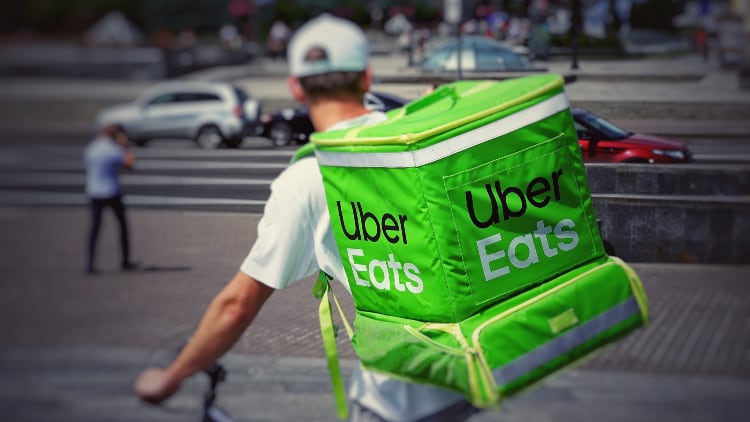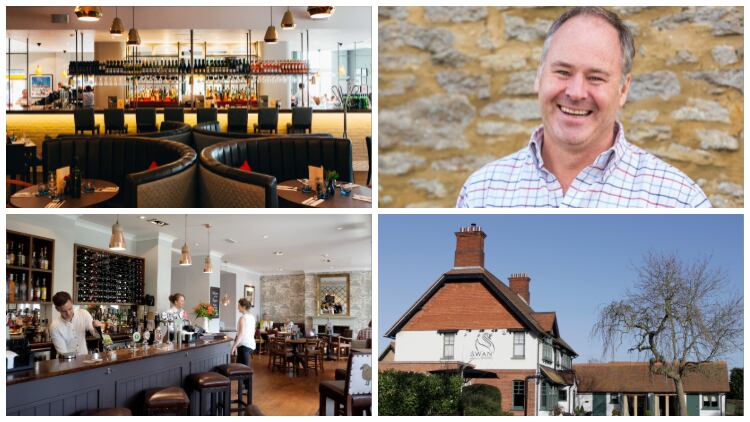Not all publicans will have heard of the ‘gig economy’, but it’s a term that’s fast increasing in popularity.
The term is used to describe the rise of temporary jobs that have a high degree of flexibility: for instance, Deliveroo or Airbnb employees are considered to be members of the gig economy.
With the costs of running pubs increasing, from rental costs to the cost of fresh, local ingredients for food, there are a myriad of ways for pub landlords to exploit the gig economy both to cut costs and to offer added benefits for customers who are searching for enhanced experiences.
By working with Deliveroo to transport food from pub kitchens to local homes, the delivery company claims pubs can expect to see a revenue increase of up to 30%. Airbnb has experienced a whopping 153% global compound growth rate since 2009, illustrating seismic levels of increased public interest in the service.
In fact, the UK is the fifth most popular territory for Airbnb in the world, behind only the US, France, Italy and Spain.
“Staying in a pub with a log burner in winter and a sunny garden in the summer must be better than being stuck in a room,” says Lauren Davison, owner of the Fox at Peasemore pub near Newbury, Berkshire.
Granted, renting out rooms in pubs is nothing new, but Lauren and her husband Philip find there are numerous benefits to the flexibility that comes with Airbnb: “My husband had to spend time setting the page up, so new skills were needed there,” she says, but “the benefits are that the commission we pay is very low. Plus, many people use Airbnb as their first place to look. It does the advertising for us.”
The real thing
As well as playing into the consumer trend for authentic experiences, like overnight stays in ‘real’ places such as pubs rather than hotels, the gig economy allows business owners to take control because they don’t need to offer accommodation or a Deliveroo food offering all-year-round.
“The gig economy offers businesses the flexibility to manage their workforce appropriately during times of peak business by offering work, only when it is available,” says Alan Price, CEO and HR expert at software firm BrightHR. “Businesses are thereby saving money when it comes to salaries and allowing them to adapt quickly to changing business trends.”
Price also asserts embracing the gig economy will give employers access to a more diverse pool of workers. “Recent studies have shown flexibility and worklife balance continue to be at the forefront of job seekers’ minds when looking for new positions. Meaning those operating in the gig economy may have an edge when it comes to attracting talent,” he says, and this principle extends to flexibility for workers in all fields that support publicans.
So modern, flexible approaches to legal, accounting and insurance services are also becoming increasingly common in order to attract the right talent.

Third-party help
That all sounds well and good, but what about the time needed to invest in experimenting with flexible approaches, and managing them on top of the rest of daily work? Lauren at the Fox at Peasemore admits that grappling with Airbnb can be a challenge, which is why companies like Portico Host exist.
“We want to make it easy to be a landlord, whether accidental or portfolio,” says Samantha Bell, marketing manager of estate agent Portico Host. “Our Airbnb management service helps landlords to minimise void periods that may come about if tenants vacate early or have a change of circumstances. The ability to offer short lets as well as long lets allows our landlords to maximise their returns.”
To reduce stresses, Portico’s team visits properties to offer styling tips and ideas to make the property more appealing and homely for guests to help landlords who are pushed for time. “A few simple touches can gain you those extra stars with review,” says Bell.
Deliveroo can also now aid busy publicans who are unable to provide their own food offering. Customers may now order external food into pub venues – offering licensees and guests the additional perk of world-class food from external vendors without needing to leave their seat in the pub.
“We want to focus on what we are exceptional at,” says Renegade London wine bar chief wine officer Warwick Smith. “We are not set up to deliver high-quality, class-leading food. We also don’t have the staff, space, kitchen or resources to offer hot, complex, sophisticated food. So like everything, if you can’t do it well yourself, outsource.” Smith says: “It works really well, but there needs to be clear separation between our drinks and the external food being delivered by Deliveroo. The key thing is making sure customers know we are not responsible for the food they order, nor do we make any money on it.”
The pub is simply offering a value add for customers. Smith adds: “We want people to have the flexibility to order in. We want people to stay and enjoy the wine. If they want sushi tacos, pizza, fresh pasta or a poke bowl, then Deliveroo away, baby.”
For Holly Hewett, head of marketing innovation at Mitchells & Butlers pubs, the benefits of Deliveroo goes even further, helping them “reach a greater share of customers.” Hewett says: “Deliveroo helps us to reach and recruit new guests into our brands, encouraging visits into our pubs in the future so they can also enjoy our full brand experience and hospitality offer.”
“The insightful guest feedback we receive as a result of transactions through Deliveroo is hugely valuable to help us learn faster and respond to the market. In particular, guest feedback on core dishes, buyer behaviour and average order value can be analysed by customer location and now feeds into our ongoing brand innovation programme.”

Avoid confusion
But, BrightHR’s Price warns there is one major challenge. It’s important for landlords to be privy to the numerous legal grey areas when working with employers operating within the gig economy. “The level of flexibility on offer in gig economy positions can create confusion when it comes to employment status,” he says.
“From an employer’s perspective, this confusion may lead to a rise in tribunal claims, with staff disputing their ‘self-employed’ status, instead of believing themselves to qualify as ‘workers’ or ‘employees’.”




